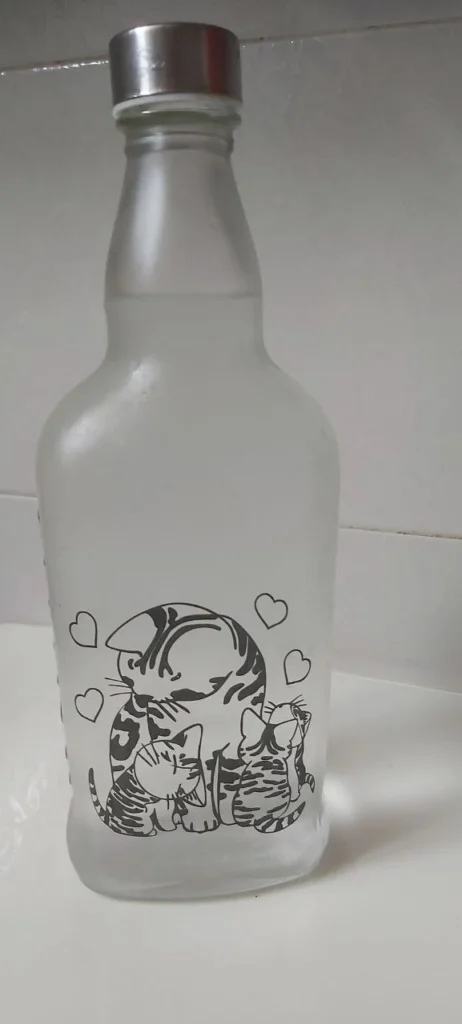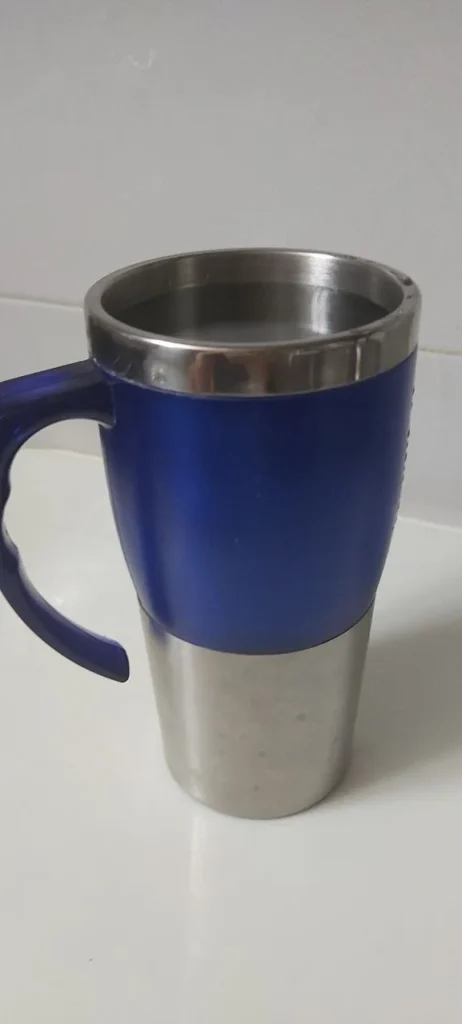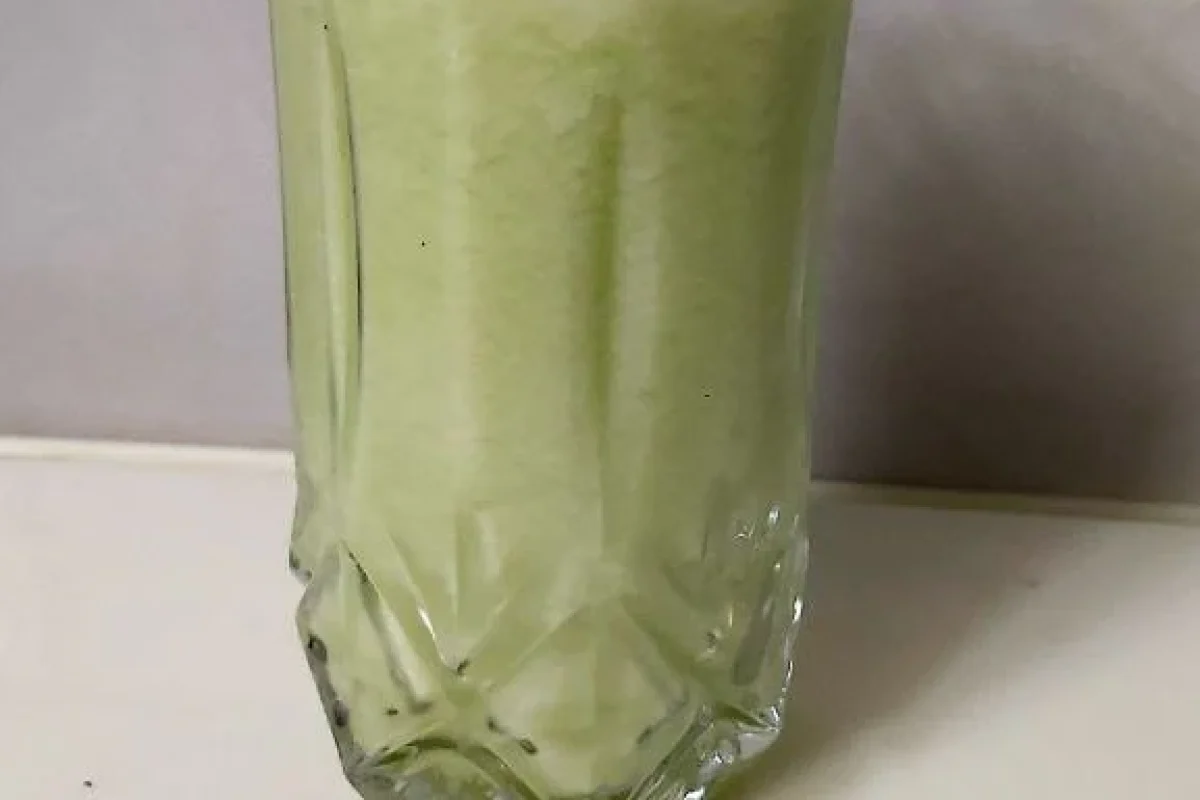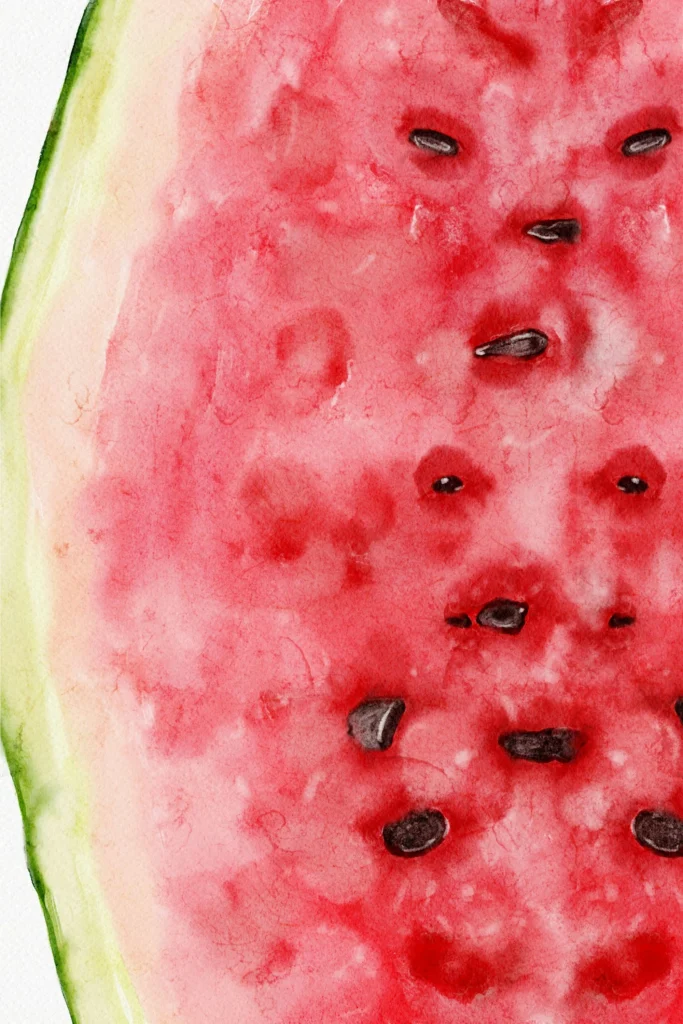Drink Up to Slim Down: The Surprising Role of Water in Weight Loss!


The Role of Hydration in Weight Loss
Hydration plays a critical role in weight loss and overall health. Here’s a look at how staying hydrated can support your weight loss journey:
1. Boosts Metabolism
- Drinking enough water can temporarily boost your metabolism, helping your body burn calories more efficiently. Studies show that drinking water increases resting energy expenditure, meaning you burn more calories even at rest.
2. Reduces Appetite and Curbs Cravings
- Sometimes, the body can mistake thirst for hunger, leading to unnecessary snacking. Drinking water before meals can also make you feel fuller, which may reduce calorie intake and help with portion control.
3. Aids in Digestion and Reduces Bloating
- Staying hydrated supports digestion and helps prevent constipation. Water helps flush out excess sodium and waste from the body, reducing bloating and making you feel lighter.
4. Supports Workouts and Physical Performance
- Proper hydration is essential for effective workouts, which are key to weight loss. Dehydration can lead to fatigue, muscle cramps, and reduced endurance, making it harder to stay active.
5. Helps Break Down Fat
- Water is necessary for lipolysis, the process by which the body breaks down fat. Drinking enough water aids this process, allowing the body to burn stored fat more effectively.
6. Reduces Liquid Calories
- Replacing sugary drinks like soda, juice, or sweetened coffee with water can significantly cut calorie intake. This simple swap reduces “empty” calories that contribute to weight gain.
How Much Water Should You Drink?
- A general guideline is to drink at least 8 glasses (64 ounces) per day, but individual needs can vary based on factors like body size, activity level, and climate. Listening to your body’s signals and drinking when thirsty is also important.
Incorporating more water into your daily routine can be a simple yet powerful step towards reaching your weight loss goals.
How Water Affects Fat Burning and Digestion
The Impact of Hydration on Hunger and Cravings
How Water Affects Fat Burning and Digestion
Water plays a crucial role in digestion and fat metabolism, both directly and indirectly:
Boosts Metabolism: Staying well-hydrated increases metabolism. Drinking water, especially cold water, can temporarily boost metabolism as the body expends energy to warm the water to body temperature. Studies show that even a slight increase in water intake can have a noticeable effect on calorie burn.
Enhances Fat Metabolism: Fat metabolism requires water. When your body breaks down fat, a process called lipolysis, it uses water molecules in the process. Adequate hydration supports this breakdown, making it easier for the body to convert fat into usable energy. Dehydration can hinder this process, making it more challenging to burn fat.
Improves Digestion and Nutrient Absorption: Water is essential for breaking down food and absorbing nutrients. Without enough water, digestion slows, leading to constipation, bloating, and other digestive discomforts. Drinking water before or with meals can assist in breaking down food and making nutrients more accessible for absorption.
Supports Kidney and Liver Function: The kidneys and liver help filter waste and toxins from the body, and both rely on adequate water to function efficiently. If you’re dehydrated, your kidneys might not function as well, and the liver may have to take on some of the kidney’s duties. This shift can reduce the liver’s efficiency in metabolizing fat, slowing down fat-burning processes.
The Impact of Hydration on Hunger and Cravings
Hydration also plays a significant role in regulating hunger and managing cravings, which can be beneficial for weight management:
Reduces False Hunger Signals: Thirst is often mistaken for hunger. Drinking water when you feel a mild hunger pang may reveal it’s thirst instead. By drinking water, you can prevent unnecessary snacking or overeating.
Suppresses Appetite Before Meals: Drinking a glass of water 30 minutes before meals can help create a sense of fullness, potentially leading to consuming fewer calories. This is especially helpful for those aiming to control portion sizes or reduce overall caloric intake.
Reduces Cravings for Sugary and Caloric Foods: Sometimes, cravings for sweet or salty snacks may stem from dehydration rather than genuine hunger. Hydrating regularly can help balance these cravings, as adequate water intake helps regulate blood sugar levels and balances hormone function related to hunger.
Affects Hormones Related to Hunger: Adequate hydration can positively influence hormones such as ghrelin and leptin, which regulate hunger and satiety. Dehydration may disrupt these hormones, making it harder to manage appetite and increasing the likelihood of cravings.
Practical Tips for Using Hydration to Support Fat Burning and Manage Hunger
Drink Cold Water for a Metabolic Boost: Drinking cold water may slightly increase calorie burn as your body works to warm it up.
Stay Consistent Throughout the Day: Sip water regularly instead of drinking large amounts at once, which can help prevent bloating and allow for sustained hydration.
Carry a Water Bottle: Keep a water bottle with you as a reminder to stay hydrated.
Flavor Your Water if Needed: Add lemon, cucumber, or berries for flavor to make it more enjoyable to drink.
Staying hydrated is an easy yet powerful way to support metabolism, digestion, and weight management.

How Dehydration Slows Down Your Metabolism
Dehydration, even at mild levels, can significantly slow down metabolic processes and hinder weight management goals. Here’s how:
-
Reduces Caloric Burn: Dehydration slows the rate at which the body burns calories. Water is essential for many metabolic reactions, including those involved in breaking down carbohydrates and fats. When the body is dehydrated, these processes slow down, resulting in fewer calories burned throughout the day.
-
Hampers Fat Metabolism: Proper hydration is essential for lipolysis, the process of breaking down fats for energy. Inadequate water intake means that the fat stored in the body is broken down more slowly, making it harder to lose weight or burn fat.
-
Increases Fatigue and Reduces Physical Activity: Dehydration can lead to fatigue, reducing energy levels and making it harder to stay physically active. With less energy for movement, fewer calories are burned, which further slows metabolism. Physical activity is essential for a high metabolic rate, so a lack of hydration can cause an overall decrease in daily calorie expenditure.
-
Impairs Muscle Function and Recovery: Muscles play a key role in metabolism since they require energy to function and repair. Water is needed to transport nutrients to muscles and clear out waste products. Dehydrated muscles recover more slowly, perform less efficiently, and are more prone to cramps and fatigue. This can limit the intensity and duration of physical activity, impacting metabolism.
-
Slows Down Cellular Functions: Every cell in the body relies on water for proper function, from energy production to waste removal. Dehydration affects cellular efficiency, slowing down processes that would otherwise contribute to a faster metabolism. For instance, dehydrated cells are less effective at converting stored fat and glycogen into energy.
-
Affects Digestion and Nutrient Absorption: Dehydration can lead to digestive issues, such as constipation, which in turn impacts metabolism. Proper digestion and nutrient absorption are crucial for metabolic function. When the digestive system is sluggish, nutrient absorption is less efficient, and metabolism slows down as a result.
-
Impacts Hormone Balance: Dehydration can disrupt the balance of hormones that regulate metabolism, such as cortisol (the stress hormone) and insulin. For example, increased cortisol due to dehydration can signal the body to hold onto fat, slowing down the metabolic rate.
Signs of Dehydration That May Affect Metabolism
- Feeling unusually tired, even after adequate sleep
- Constipation or other digestive discomforts
- Persistent thirst or dry mouth
- Difficulty focusing or mental fatigue
- Dark urine, a key indicator of dehydration
Tips to Stay Hydrated and Boost Metabolism
- Start the Day with Water: Drinking a glass of water first thing in the morning can kickstart your metabolism after hours without fluid intake.
- Sip Regularly, Not Just When Thirsty: Don’t wait until you’re thirsty to drink; sip water throughout the day to stay ahead of dehydration.
- Set Reminders or Use Apps: Hydration reminders can be a simple way to help maintain consistency.
- Add Electrolytes if Needed: If you’re engaging in intense exercise or sweating heavily, add electrolytes to your water to maintain hydration and electrolyte balance.
Staying well-hydrated is a simple, yet impactful, way to keep your metabolism running smoothly and support your weight management goals.
Signs of Dehydration and Its Effect on Your Body
How Dehydration Slows Down Fat Metabolism
Dehydration occurs when the body loses more fluids than it takes in, and even mild dehydration can have various impacts on health and bodily functions:
-
Common Signs of Dehydration:
- Dry Mouth and Thirst: A dry or sticky mouth is an early sign that your body needs more water.
- Dark Urine: Urine that’s dark yellow or amber in color can indicate dehydration. In a well-hydrated state, urine is usually pale yellow.
- Fatigue: Dehydration can make you feel unusually tired and low on energy, as the body conserves resources to compensate for the lack of fluids.
- Dizziness and Headaches: Dehydration can lead to headaches or a feeling of lightheadedness due to reduced blood volume and blood flow to the brain.
- Dry Skin and Lips: Dehydrated skin may lose elasticity, and lips can become chapped or cracked.
- Muscle Cramps: Loss of electrolytes from dehydration can cause muscle cramps and spasms, particularly after exercise.
- Difficulty Focusing or Brain Fog: Dehydration can impair cognitive function, leading to reduced focus, memory, and mental clarity.
-
Effects of Dehydration on the Body:
- Decreased Blood Volume: Dehydration leads to reduced blood volume, which makes it harder for the heart to pump blood efficiently. This can lead to an increased heart rate and lowered endurance, especially during exercise.
- Digestive Issues: Dehydration can cause constipation as water is essential for moving waste through the digestive tract.
- Poor Temperature Regulation: Without enough water, the body can’t regulate its temperature as effectively, making it harder to cool down, especially in hot weather or during physical activity.
- Increased Cortisol Levels: Dehydration can elevate cortisol, the body’s primary stress hormone, which can negatively impact mood, metabolism, and immune function over time.
How Dehydration Slows Down Fat Metabolism
Water is essential for breaking down fats in the body, specifically through a process called lipolysis. When you’re dehydrated, fat metabolism slows for several reasons:
-
Lipolysis and the Need for Water: For fat to be broken down, water molecules must interact with fat molecules, a process called hydrolysis. During this process, water is required to split triglycerides (fat) into fatty acids and glycerol, which the body then uses as energy. Without enough water, this process becomes less efficient, making it harder for the body to burn stored fat.
-
Reduced Enzyme Activity: Enzymes involved in fat metabolism, including those that aid in converting fat into usable energy, depend on an adequate supply of water. Dehydration can impair enzyme activity, slowing the body’s ability to process and burn fat.
-
Less Efficient Kidney Function: When dehydrated, the kidneys are less effective at filtering waste. This can force the liver to take on some of the kidney’s workload, which can reduce the liver’s ability to metabolize fat. The liver plays a major role in fat metabolism, so when it’s occupied with additional tasks, fat-burning efficiency decreases.
-
Slowed Metabolism Overall: Dehydration affects all cellular functions, slowing down energy production in cells throughout the body. With slowed cellular function comes an overall decrease in metabolic rate, reducing the number of calories burned throughout the day, including from fat stores.
-
Reduced Energy for Physical Activity: Dehydration causes fatigue, which can limit physical activity. Since exercise and physical activity are key components of burning fat, a reduction in movement further hinders fat loss. Without the energy or endurance for regular exercise, the body burns fewer calories and less fat.
-
Higher Cortisol Levels and Fat Storage: Dehydration can increase cortisol, which may signal the body to store more fat as a protective response. Elevated cortisol is associated with increased fat storage, particularly around the abdomen, and can counteract the body’s ability to burn fat efficiently.
Tips to Stay Hydrated and Support Fat Metabolism
- Drink Water Consistently Throughout the Day: Aim for regular hydration, especially before and after meals and workouts, to keep water levels steady.
- Consider Your Environment and Activity Levels: In hot climates or during intense workouts, increase your fluid intake to compensate for extra fluid loss.
- Consume Water-Rich Foods: Vegetables and fruits like cucumbers, watermelon, and oranges can help boost hydration.
- Add Electrolytes When Needed: For heavy sweating or prolonged activity, replenish with electrolyte-rich fluids to maintain proper hydration and support metabolic function.
By staying hydrated, you help maintain a higher metabolic rate, support fat metabolism, and enable the body to burn stored fat more efficiently.

Benefits of Drinking Water for Weight Loss
Drinking water is a simple yet effective tool for supporting weight loss. Here’s how proper hydration can aid in shedding pounds:
Increases Calorie Burn (Thermogenesis): Drinking cold water can induce a mild thermogenic effect, where your body burns calories to warm the water to body temperature. Studies have shown that this can slightly increase calorie burn, particularly when water is consumed in intervals throughout the day.
Suppresses Appetite: Drinking water before meals can help reduce overall calorie intake. Water fills the stomach, which can create a sense of fullness and help prevent overeating. For some, a glass of water 30 minutes before meals can significantly decrease appetite and portion sizes.
Reduces Liquid Calorie Intake: Choosing water over high-calorie, sugary drinks like soda, juice, or fancy coffee beverages can make a big difference in daily calorie intake. By replacing sugary beverages with water, you avoid “empty calories” that add up quickly and contribute to weight gain.
Supports Fat Metabolism: Water is necessary for lipolysis, the process by which the body breaks down fat molecules for energy. Without adequate hydration, fat metabolism slows, making it harder to lose fat. Staying hydrated supports the body in burning stored fat efficiently.
Improves Exercise Performance: Proper hydration is essential for optimal muscle function and endurance. When the body is well-hydrated, you can exercise at higher intensities and for longer durations. This results in more calories burned and promotes weight loss. Dehydration, on the other hand, leads to fatigue, reducing both performance and calorie burn.
Reduces Water Retention and Bloating: Ironically, drinking more water can help reduce water retention and bloating. When dehydrated, the body holds onto extra water as a survival mechanism. By drinking enough water, the body feels safe to release any excess, leading to a leaner appearance.
Supports Digestion and Regularity: Water aids in digestion and helps prevent constipation. When the digestive system functions smoothly, nutrients are absorbed more effectively, and waste is eliminated regularly. This prevents bloating and keeps metabolism running at its best.
Improves Mental Clarity and Reduces Stress Eating: Staying hydrated can boost focus and concentration, reducing the likelihood of mindless snacking or eating due to stress or boredom. Dehydration, on the other hand, can contribute to feelings of fatigue and fogginess, sometimes mistaken for hunger or cravings.
Balances Hormones Linked to Hunger and Satiety: Hydration plays a role in balancing hormones that regulate hunger, such as ghrelin, which increases hunger, and leptin, which signals fullness. Drinking water can help keep these hormones balanced, making it easier to feel satisfied with fewer calories.
Enhances Metabolic Rate: Some research suggests that drinking water may modestly increase the metabolic rate, helping the body burn calories at a slightly faster rate throughout the day. Even a small boost in metabolism can accumulate over time to support long-term weight loss.
Practical Tips for Using Water for Weight Loss
Start Your Day with Water: A glass of water in the morning can kickstart your metabolism and help rehydrate your body after hours without fluids.
Use Water as a First Response to Hunger: Try drinking a glass of water when you feel a slight hunger pang; sometimes, thirst can be mistaken for hunger.
Set Regular Reminders: Many people find it helpful to set hydration reminders on their phone or carry a water bottle as a visual cue.
Add Flavor to Keep It Interesting: Adding lemon, cucumber, or fresh herbs like mint can make water more appealing.
Opt for Water-Rich Foods: Vegetables and fruits like cucumbers, watermelon, and oranges contribute to hydration and offer essential vitamins and fiber, supporting weight loss.
Incorporating more water into your daily routine is a straightforward way to enhance weight loss efforts, improve energy, and support overall health.
Water and Calorie Burning: The Thermogenic Effect
Other Hydration Options: Herbal Teas, Infused Water, and Electrolytes
Drinking water, especially cold water, can have a mild thermogenic effect, which slightly increases calorie burn:
How Thermogenesis Works: Thermogenesis is the process of heat production in the body. When you drink cold water, your body has to work to raise it to body temperature, expending energy in the process. This energy expenditure results in burning a small number of additional calories.
Caloric Impact of Cold Water: Studies suggest that drinking about 500 ml (roughly 17 ounces) of cold water can increase resting calorie burn by around 24-30% for up to an hour. Though this doesn’t result in a large number of calories burned, the effect can add up over time, especially if you’re drinking water consistently throughout the day.
Improved Metabolic Rate: Drinking water can also temporarily raise your metabolic rate. Even at room temperature, water has a positive impact on metabolism and calorie burn, though the thermogenic effect is more noticeable with cold water.
Increased Calorie Burn from Hydration-Enhanced Exercise: Staying well-hydrated helps improve exercise performance, which can lead to higher calorie burn during physical activities. When your body is dehydrated, exercise feels harder, and endurance decreases, resulting in a lower overall calorie burn.
Other Hydration Options: Herbal Teas, Infused Water, and Electrolytes
If plain water doesn’t appeal to you, there are other hydration options that add flavor and nutrients without added sugars or calories:
Herbal Teas:
- Calorie-Free and Naturally Flavored: Herbal teas, made from herbs, flowers, or dried fruit, are caffeine-free and can be enjoyed hot or cold. Popular options like peppermint, chamomile, and hibiscus provide refreshing flavors that can satisfy cravings without adding calories.
- Health Benefits: Many herbal teas have additional health benefits. For instance, peppermint tea can help with digestion, chamomile tea can promote relaxation, and ginger tea may reduce inflammation and aid in digestion.
- Supports Hydration: Herbal teas are an excellent way to stay hydrated, offering a flavorful alternative to water while keeping you well-hydrated.
Infused Water:
- Natural Flavor with No Added Sugars: Infused water involves adding fruits, herbs, or even vegetables to plain water, enhancing its taste without added calories. Common infusions include lemon and cucumber, berry and mint, or orange and basil.
- Nutrient Boost: While the nutrient content is minimal, infusing water can add small amounts of vitamins and antioxidants from the fruits and herbs used. It also provides subtle flavor, making it easier to drink more water throughout the day.
- Improves Digestive Health: Citrus-infused waters, like lemon water, are mildly acidic, which can stimulate digestion and help balance the body’s pH.
Electrolyte Drinks:
- Essential for Active Lifestyles: When you sweat, your body loses electrolytes like sodium, potassium, and magnesium, which are crucial for muscle function and hydration. Electrolyte drinks can be especially beneficial after intense workouts, in hot climates, or for those who are active for extended periods.
- Options to Avoid Added Sugars: Many commercially available electrolyte drinks contain added sugars, so look for options that are low in sugar or use natural sweeteners. Alternatively, you can make your own electrolyte drink by adding a pinch of sea salt and a squeeze of lemon to water.
- Prevents Dehydration Symptoms: Proper electrolyte balance can prevent dehydration-related symptoms like muscle cramps, fatigue, and dizziness, making it easier to stay active and burn calories.
Tips for Including These Hydration Options in Your Routine
- Rotate Beverages: Try drinking plain water, herbal teas, and infused water throughout the day to keep things interesting and enjoyable.
- Infuse Overnight: For infused water, let fruits and herbs sit in water in the fridge overnight for a richer flavor.
- Hydrate Before and After Exercise: For exercise lasting more than an hour, or if you’re sweating heavily, consider an electrolyte drink to replenish lost minerals.
- Avoid Sugary Additives: Opt for natural, unsweetened options to avoid excess sugar and calories that could counteract your weight loss goals.
With these hydrating options, you can enjoy variety and additional health benefits while supporting weight loss and hydration goals.
How Much Water Should You Drink to Lose Weight?
The ideal water intake for weight loss varies depending on several factors, including your body weight, activity level, climate, and individual needs. Here are some general guidelines to help determine how much water you should drink to support weight loss:
Follow the “8×8 Rule”: The traditional recommendation is to drink eight 8-ounce glasses of water per day (about 2 liters or half a gallon). This is a good starting point, but individual needs may vary.
Adjust for Body Weight: A more personalized approach is to drink approximately half an ounce to an ounce of water per pound of body weight. For instance, a 150-pound person would aim to drink 75 to 150 ounces of water daily (about 2.2 to 4.4 liters). This range can support metabolism, digestion, and help curb hunger.
Drink More with Exercise: If you’re exercising or have a highly active lifestyle, you’ll need to increase your water intake to compensate for fluid loss through sweat. An additional 12-20 ounces of water (about 350-600 ml) for every 30 minutes of intense exercise can help maintain hydration.
Consider Climate and Weather: In hot or humid environments, or at high altitudes, the body loses water more quickly through sweat and respiration. Aim to increase water intake during hotter seasons or while spending extended time outdoors.
Drink Before Meals: Drinking 1-2 glasses (about 16-24 ounces or 500-700 ml) of water 30 minutes before meals can promote a feeling of fullness and reduce calorie intake. This simple practice has been shown in studies to support weight loss by helping control portion sizes and reducing overall caloric intake.
Listen to Your Body: Thirst is a reliable indicator of hydration needs. If you feel thirsty, it’s your body’s way of signaling for water. Other signs, such as dark urine, dry mouth, or fatigue, can also indicate dehydration.
Daily Water Intake Example for Weight Loss
For a 150-pound person with a moderate activity level:
- Base water intake: 75-150 ounces (2.2-4.4 liters)
- Extra water for 1 hour of exercise: 24-40 ounces (700-1200 ml)
- Total: 100-190 ounces (3-5.6 liters) per day
Tips for Reaching Your Water Intake Goals
- Start Your Day with Water: Drinking a glass of water first thing in the morning helps rehydrate after hours without fluids.
- Set Reminders: Use apps or set hourly reminders to encourage consistent hydration throughout the day.
- Drink with Meals: Drinking water before or during meals helps you meet your water intake goals and supports digestion.
- Carry a Reusable Water Bottle: Having a water bottle on hand makes it easier to track intake and reminds you to drink regularly.
By maintaining consistent hydration, you support metabolic efficiency, reduce hunger and cravings, and optimize fat metabolism—all key elements for successful weight loss.
How to Calculate Your Ideal Water Intake
Adjusting Your Water Consumption Based on Activity and Weather
Calculating your ideal water intake helps tailor hydration to your body’s specific needs. Here are some methods to determine how much water you should drink daily:
Use Your Body Weight:
- Basic Calculation: A common rule is to drink half an ounce to one ounce of water for each pound of body weight.
- Formula: Body weight (in pounds) x 0.5 to 1 = Daily ounces of water.
- Example: For a 160-pound person, the recommended range would be 80-160 ounces (about 2.4-4.7 liters) daily.
Consider Activity Level:
- For every 30 minutes of exercise, aim to add 12-20 ounces (about 350-600 ml) of water to your daily intake to replace fluids lost through sweat.
- High-intensity workouts or endurance activities may require even more hydration.
Follow General Guidelines (The “8×8 Rule”):
- The 8×8 rule suggests drinking eight 8-ounce glasses of water daily (64 ounces, or about 2 liters). While this is a general recommendation, it may not be enough for everyone, particularly those who are more active or have higher water needs due to body weight.
Use the Urine Color Test:
- Monitor the color of your urine as a quick hydration check. Pale yellow or straw-colored urine indicates proper hydration, while darker yellow or amber may indicate you need more water.
Hydration Based on Climate and Personal Needs:
- Individual needs vary based on diet (high-protein, high-fiber, or high-sodium diets may require more water) and health conditions (such as kidney function or pregnancy), so adjust as needed.
Adjusting Your Water Consumption Based on Activity and Weather
Increased Water Needs for Physical Activity:
- Pre-Workout: Drink 8-12 ounces (240-350 ml) of water 30 minutes before exercising.
- During Workout: Sip 4-8 ounces (120-240 ml) every 15-20 minutes, especially for activities over 30 minutes or in hot environments.
- Post-Workout: Drink 16-24 ounces (about 500-700 ml) for each pound lost during exercise to replenish fluids.
Adjusting for Climate:
- Hot and Humid Weather: When temperatures rise or humidity is high, your body loses more water through sweat. Increase water intake by 10-20% on hot days or when spending extended periods outdoors.
- Cold Weather: In cold environments, hydration needs may be slightly lower, but it’s still essential to drink regularly. Cold air can dehydrate the body, particularly with indoor heating or high-altitude conditions, so aim to maintain baseline hydration levels.
- High Altitudes: Higher altitudes increase respiratory water loss. If you’re in mountainous areas or traveling to high elevations, increase your intake by at least 1-2 glasses of water daily.
Special Considerations:
- During Illness: If you’re sick, particularly with a fever, vomiting, or diarrhea, increase your water intake to avoid dehydration. Soups, herbal teas, and electrolyte-enhanced drinks can also help.
- Pregnancy and Breastfeeding: Hydration needs increase during pregnancy and breastfeeding. Pregnant individuals may need an additional 8-12 ounces daily, while breastfeeding individuals may need an extra 24 ounces (700 ml) to support milk production.
Practical Tips to Meet Your Hydration Goals
- Track Your Water Intake: Use apps or tracking bottles to stay on top of daily water goals.
- Set Hydration Reminders: Scheduling regular reminders can help you sip consistently throughout the day.
- Drink a Glass Before Each Meal: Drinking water before meals supports hydration and can also help manage hunger.
- Flavor Your Water: Infuse water with fruits, herbs, or a splash of lemon or cucumber for a refreshing alternative.
Calculating and adjusting your water intake ensures your body stays well-hydrated, which supports metabolism, energy levels, and overall health.

Tips for Staying Hydrated Throughout the Day
Start Your Day with Water: Begin each morning with a glass of water to rehydrate after hours without fluid. This kickstarts your metabolism and prepares your body for the day ahead.
Set a Daily Hydration Goal: Aim for a specific amount of water each day based on your needs, such as half an ounce to an ounce of water per pound of body weight. Set reminders or track your intake with a water bottle that has measurements.
Carry a Reusable Water Bottle: Having a bottle on hand makes it easier to drink consistently and helps you track progress. Look for a bottle with measurements to help visualize your goal.
Flavor Your Water: If you’re not a fan of plain water, add natural flavors with slices of lemon, lime, cucumber, mint, or berries. Infused water is tasty and can encourage you to drink more.
Sip Before Meals: Drinking a glass of water 15-30 minutes before meals helps with hydration, supports digestion, and can even aid in controlling hunger and portion sizes.
Set Regular Reminders: Use phone alarms or hydration apps to remind you to drink water every hour. Small, consistent sips throughout the day are easier to manage than trying to drink a large amount all at once.
Use a Straw: Some people find it easier to drink more water when using a straw. Reusable straws can make sipping throughout the day more convenient.
Eat Water-Rich Foods: Foods like watermelon, cucumber, oranges, lettuce, and tomatoes have high water content and can supplement your hydration efforts.
Drink Herbal Teas or Infused Water: Unsweetened herbal teas or infused water are flavorful alternatives to plain water and count toward your hydration goals.
Replace Sugary Beverages: Swap out sugary drinks like soda and juice with water or herbal teas. This reduces calorie intake while supporting hydration.
Hydrate Before, During, and After Exercise: Drink water before physical activity to start off hydrated, sip throughout to replace sweat losses, and rehydrate afterward, especially after intense workouts.
Track Your Progress: Use apps or a journal to keep track of your water intake. Tracking can keep you accountable and show if you’re meeting your goals consistently.
Drink a Glass Before Bed: End your day with a small glass of water to stay hydrated through the night, but be mindful of drinking too much if it disrupts your sleep.
Staying hydrated helps maintain energy levels, supports digestion, and enhances overall wellness. Small, consistent efforts throughout the day make it easier to stay on track with hydration.
Carrying a Water Bottle with You
Setting Hydration Reminders
Hydrating Foods to Include in Your Diet
Having a water bottle within reach makes it much easier to stay hydrated consistently. Here are some tips for making the most out of this habit:
Choose a Bottle That Suits Your Needs: Look for a bottle that’s the right size and design for your lifestyle. For instance, a lightweight, spill-proof bottle with a handle or strap is great for commuting, while a larger, insulated bottle works well for all-day hydration.
Use a Marked Water Bottle: Many water bottles come with time markers or ounce measurements, helping you track how much you’ve drunk throughout the day and stay on target.
Keep It Visible: Place your water bottle somewhere you’ll see it regularly, like on your desk, in your bag, or beside you while driving. A visual reminder can help reinforce the habit of drinking.
Refill Regularly: Make a point to refill your bottle each time it’s empty, so you always have water on hand. This habit encourages you to drink throughout the day instead of only when you’re particularly thirsty.
Setting Hydration Reminders
For many people, life’s distractions can make it easy to forget to drink enough water. Here’s how to keep hydration top of mind:
Use a Hydration App: Apps like My Water, Hydro Coach, or WaterMinder can send reminders throughout the day and track your water intake. They often allow you to set goals based on body weight or activity level.
Set Phone or Smartwatch Alarms: Simple hourly reminders on your phone or smartwatch can prompt you to take a quick sip, ensuring consistent hydration.
Link Drinking to Routine Activities: Tie drinking water to regular activities, like sipping water every time you check your email, before each meal, or whenever you return to your workspace. These small habits make it easy to build hydration into your daily routine.
Place Reminders in Your Environment: Sticky notes or small reminders near your workspace, kitchen, or bathroom mirror can help you remember to drink water each time you see them.
Hydrating Foods to Include in Your Diet
Incorporating water-rich foods into your diet helps boost hydration while also adding essential vitamins, minerals, and fiber. Here are some hydrating foods to consider:
Fruits:
- Watermelon: This summer favorite is over 90% water and packed with vitamins A and C.
- Strawberries: With a high water content and antioxidants, strawberries are great for hydration and nutrition.
- Oranges: Not only hydrating, but oranges also provide immune-boosting vitamin C.
- Pineapple: Full of water and rich in bromelain, which aids in digestion.
- Grapefruit: Another hydrating, low-calorie fruit with vitamin C and fiber.
Vegetables:
- Cucumber: Composed of over 95% water, cucumbers are incredibly hydrating and low in calories.
- Lettuce: Especially iceberg and romaine varieties are high in water content and easy to add to meals.
- Zucchini: A versatile vegetable with high water content, great in stir-fries, salads, or as noodles.
- Celery: Known for its high water and fiber content, celery is an excellent low-calorie snack.
- Tomatoes: Juicy and hydrating, tomatoes are rich in antioxidants like lycopene.
Dairy and Alternatives:
- Yogurt: Contains water, probiotics, and protein, making it a great choice for hydration and gut health.
- Cottage Cheese: With a high water content, cottage cheese provides both hydration and protein.
- Plant-Based Milk: Almond, coconut, and other plant-based milks often contain added water and can contribute to hydration.
Broths and Soups:
- Soups made with water-based broths (like vegetable or bone broth) are excellent for hydration, especially in cooler months. Just watch out for sodium levels, as some broths can be high in salt, which may counteract hydration efforts.
By carrying a water bottle, setting reminders, and including hydrating foods in your diet, you’ll find it easier to stay hydrated and maintain energy, focus, and overall wellness throughout the day.


